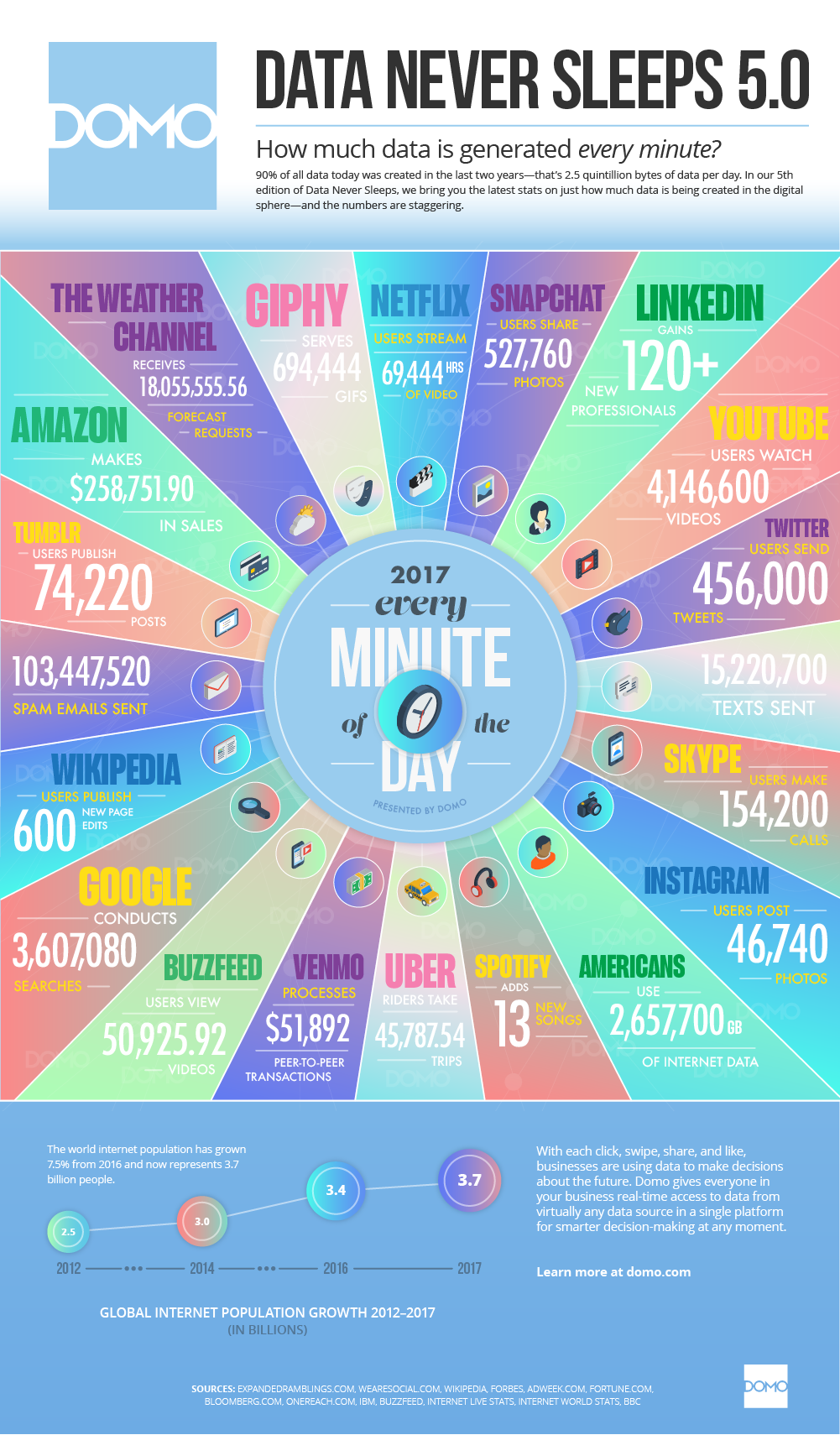Tags
 Following on from my blog post outlining an A-Z of Digital, here is “Y for Yottabyte”.
Following on from my blog post outlining an A-Z of Digital, here is “Y for Yottabyte”.
You are probably more used to terms such as Megabyte, GigaByte of Terabyte in every day computing terms. Yottabyte is a term used to define an amount of storage that is a lot bigger than these. The prefix yotta indicates multiplication by the eighth power of 1000 or 1024.
The below table shows the storage values and metrics:
| Value | Metric | |
|---|---|---|
| 1000 | kB | kilobyte |
| 10002 | MB | megabyte |
| 10003 | GB | gigabyte |
| 10004 | TB | terabyte |
| 10005 | PB | petabyte |
| 10006 | EB | exabyte |
| 10007 | ZB | zettabyte |
| 10008 | YB | yottabyte |
We are now living in a society that generates large amounts of data on a daily basis, with a passion to keep adding to it. The norm is to create and not delete.
With the growth of the internet, social media, mobiles, IoT, wearables and other data creating devices and systems we are each creating large amounts of data everyday which need to be stored somewhere (this can be at your home, work, cloud or a 3rd party collecting the data you create).
According to IBM: 90% of the data today has been created in the last 2 years with 2.5 quintillion bytes of data per day generated – that’s 2,500,000 Terabytes or (0.0000025 Yottabytes)
So how much data do we create every minute? Domo have produced an infographic that illustrates how this is created across multiple platforms and systems, such as 456,000 tweets and 2,657,700 GB of internet data used by Americans every minute.

A report from Hootsuite in April 2017 illustrates the growth patterns:
Another growth fact on the internet:
The Indexed Web contains at least 4.59 billion pages (Tuesday, 17 October, 2017).
The generation of data brings challenges of what to do with it and how to mine it for useful information through big data, AI, machine learning, data science and analytics This has brought two views as to whether data the new oil or not (Data is the new Oil vs Data is not the new Oil).
The challenge of deleting and the right to be forgotten is being addressed through legislation in which companies and those storing data about others are now facing a bigger question of compliance with GDPR looming on the horizon. With the potential of big fines, GDPR is something that should not be ignored.
Failure to comply with GDPR could trigger fines of 4 percent of your annual revenue or €20 million, whichever is higher.
How much data are you generating today!
Further Reading
- A-Z of Digital – L is for Legal
- Whats ahead for security and cloud adoption
- Retail data and the brexit vote
- 2 new business processes key to GDPR compliance
- Accelerating GDPR readiness: Now’s the time to get started
- Getting the analytics right for GDPR compliance – and beyond
- The impact of GDPR on the Public Sector
- Customer Privacy in Focus Infographic:GDPR
- IoT Device Security Considerations and Security Layers
- DXC Labs: Using data stories to accelerate machine learning solutions
- Customer Privacy: Going Beyond GDPR
